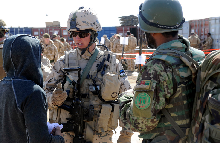Nu de Europese Unie de verkiezingsuitslag in Wit-Rusland niet erkent, zijn de conclusies snel getrokken: het volk is voor democratie, snakt naar hervormingen en moet worden gesteund in zijn strijd tegen de pro-Russische dictator-president Loekasjenko. De Maidan herhaalt zich. In 2013 sloeg daar de vlam in de pan nadat de pro-Russische president van Oekraïne, Viktor Janoekovitsj, een associatieakkoord van de EU met Oekraïne weigerde te ondertekenen.
Al deze conclusies zijn fout. Bij de protesten in Wit-Rusland spelen de EU en Rusland niet of nauwelijks een rol. Men protesteert tegen gemanipuleerde verkiezingen en voor hervormingen. Wat voor hervormingen is voorlopig onduidelijk.
Belangrijker dan verkiezingsfraude is dat Loekasjenko Rusland tegen zich in het harnas heeft gejaagd. Hij heeft van zijn liefde voor Rusland nooit een geheim gemaakt. Vlak na zijn verkiezing tot president in 1994 stelde hij in het Russische parlement voor om een Unie van Slavische Staten te vormen. Die moest in 1999 tot een Unie van Rusland en Wit-Rusland leiden. Die Unie kwam er niet. Ook kwam er geen gezamenlijke vlag, volkslied en munt. Wel verdwenen grenscontroles.
Loekasjenko is anders gaan denken
Maar Loekasjenko is na de annexatie van de Krim in 2014 anders over Rusland gaan denken. Een Unie is tot daaraan toe, maar van een annexatie kan geen sprake zijn. Vanaf die tijd speelt de president meer in op nationalistische gevoelens en probeert hij het idee van een Unie op een zijspoor te rangeren. In maart 2019 is zelfs een concept tegen ondermijnende buitenlandse informatieoperaties aangenomen. Het ging hier niet om ‘Westerse krachten’, zijn favoriete tegenstander, maar om Rusland.
Het idee van een Unie werd vooral door Poetin levend gehouden. Op 21 juni had er een gezamenlijk actieplan moeten liggen om dat mogelijk te maken. Een Unie past naadloos in Poetins politiek van de afgelopen decennia. Hij tracht zijn invloed in delen van Europa te vergroten die hij tot de Russische invloedssfeer rekent. Hij heeft zich mateloos gestoord aan de uitbreiding de EU en de Navo. Dit heeft geleid tot aanvaringen met het Westen in Oekraïne, Georgië, de westelijke Balkan en Moldavië.
Wit-Rusland is lid van het Oostelijk Partnerschap van de EU dat onderdeel is van het Europees Nabuurschapsbeleid. Hiermee wil de EU de relatie met voormalige Sovjetrepublieken verbeteren ‘die van strategisch belang zijn’. Ook dat vindt Poetin niet fijn. Dat hij wil voorkomen dat Wit-Rusland westwaarts afdrijft is voor mij zonneklaar.
Conflict in Wit-Rusland kan zomaar escaleren
De beschuldiging dat Rusland de verkiezingen zou hebben willen beïnvloeden met huurlingen van de firma Wagner is daarom plausibel. Wagner zou rotzooi moeten trappen zodat een pro-Russische kandidaat naar voren kon worden geschoven. Daarvoor zijn precedenten. De GROe, het hit-team van de Russische generale staf, trachtte in 2016 de verkiezingen in Montenegro te beïnvloeden om te voorkomen dat dit land lid van de Navo werd. Dat mislukte overigens jammerlijk. Ook nu trouwens. In Wit-Rusland werden 33 huurlingen gearresteerd.
Door Poetins streven oude invloedssferen te herstellen en de westerse sympathie voor hervormingsgezinde krachten zou het conflict in Wit-Rusland zomaar kunnen escaleren. Niet door gewelddadige burgers die de straat opgaan, maar door buitenlandse inmenging die de Wit-Russen dwingen partij voor oost of west te kiezen.
Rob de Wijk is hoogleraar internationale relaties en veiligheid aan de Universiteit Leiden en oprichter van het Den Haag Centrum voor Strategische Studies (HCSS). Hij schrijft wekelijks over internationale verhoudingen. Lees zijn columns hier terug.



